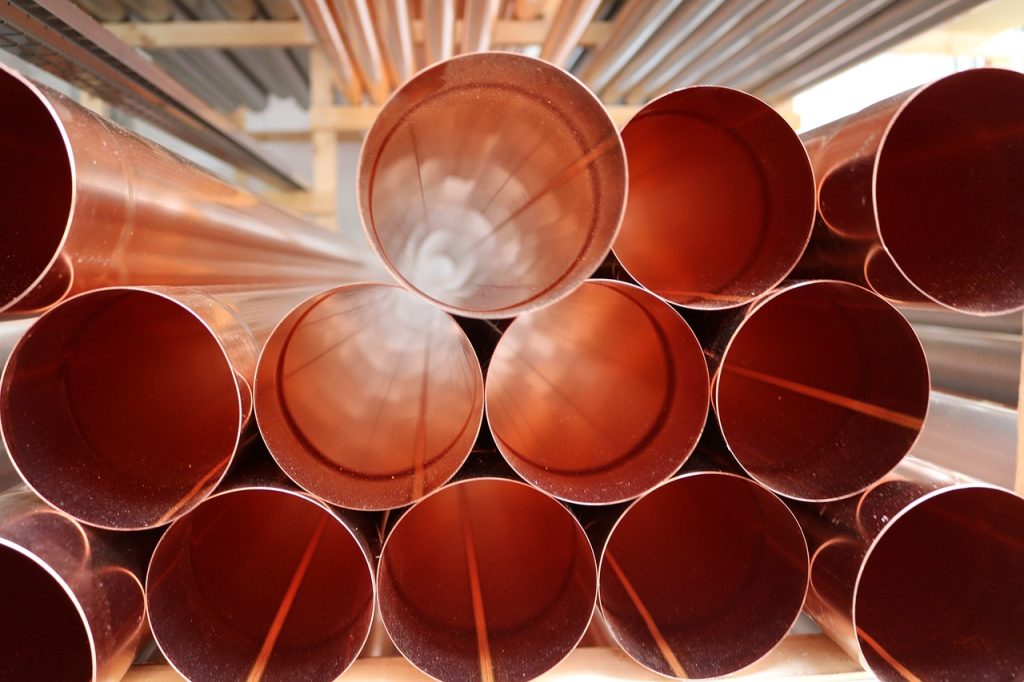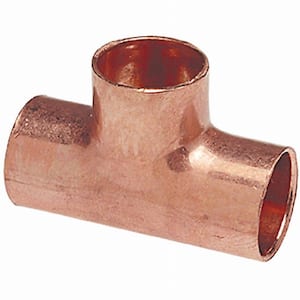Enhancing Your Kitchen with Costs Copper Products: Tips and Best Practices
Enhancing Your Kitchen with Costs Copper Products: Tips and Best Practices
Blog Article
Discovering the Diverse Applications of Copper Products in Modern Industries
From enhancing the performance of electric systems to playing an essential function in eco-friendly energy innovations, the flexibility of copper is evident. As industries progressively focus on development and sustainability, the diverse applications of copper warrant a closer evaluation, specifically concerning their potential impact on future ecological techniques and technological innovations.
Electrical Applications of Copper
Copper is a vital material in the electric market, accounting for approximately 60% of the overall need for non-ferrous metals globally - Copper Products. Its exceptional electric conductivity, which is nearly twice that of aluminum, makes it the recommended option for a wide variety of electric applications. From electrical wiring systems in domestic and industrial structures to high-voltage power transmission lines, copper guarantees effectiveness and dependability in electrical energy delivery
Along with wiring, copper is integral to the manufacturing of electric parts such as generators, transformers, and electric motors. These parts utilize copper's thermal conductivity and malleability, vital for warm dissipation and effective efficiency. Moreover, copper's resistance to corrosion boosts the life expectancy and toughness of electric systems, making it an affordable service in the long-term.
The growth of renewable resource sources, such as solar and wind power, has actually better raised the need for copper in electric applications. As sectors transition towards sustainable energy solutions, copper's function becomes also a lot more essential. Generally, the adaptability and performance qualities of copper solidify its condition as a cornerstone material within the electrical industry, driving technology and efficiency throughout numerous applications.
Pipes and Piping Solutions
In modern-day pipes systems, the choice of products considerably affects both capability and long life. Copper has arised as a favored option as a result of its special properties, including deterioration resistance and antimicrobial qualities. These characteristics make certain that copper piping continues to be secure and resilient for delivering drinkable water, an essential consideration in property and business applications.
Among the vital benefits of copper in plumbing is its ability to withstand heats and pressures, making it ideal for a selection of applications, from warm water systems to heating and cooling networks. Additionally, copper's adaptability enables less complicated setup in complex piping designs, minimizing the danger of failures and leakages.
One more noteworthy benefit is copper's long life-span, frequently exceeding 50 years with appropriate maintenance. This durability not just minimizes substitute expenses yet also adds to lasting methods by lowering waste. Copper's recyclability straightens with modern-day environmental standards, advertising a circular economy within the plumbing market.
Copper in Renewable Resource
The convenience of copper expands beyond plumbing applications, playing an important duty in the renewable resource field. Its excellent electrical and thermal conductivity makes it a vital material in the manufacturing and distribution of renewable energy sources, specifically solar and wind power. In solar panels, copper is made use of in solar batteries and circuitry, facilitating reliable power conversion and transmission. Its resistance to corrosion makes sure resilient efficiency, which is important for making the most of power outcome with time.

Furthermore, as the worldwide demand for electrical cars (EVs) boosts, copper's duty in battery systems and charging facilities comes to be a lot more substantial. The material's capability to carry out electricity effectively is integral to the efficiency of EV batteries, enhancing array and charging rate.
Copper's Function in Electronic devices
Electronics making depends heavily on copper's extraordinary buildings, especially its high electrical conductivity and thermal performance. These features make copper an ideal selection for a variety of electronic elements, consisting of adapters, circuit card, and wiring. The steel's capacity to effectively transfer electrical signals makes sure marginal power loss, which is crucial in high-performance electronic gadgets.
Moreover, copper's thermal our website conductivity plays a considerable role in heat dissipation, protecting sensitive elements from overheating. This is particularly important in contemporary electronics, where small designs result in enhanced heat generation. Copper is likewise preferred for its malleability and ductility, permitting it to be easily formed right into intricate designs that satisfy the needs of advanced electronic applications.
With the surge of consumer electronic devices, telecoms, and electrical lorries, the need for copper in the electronic devices field continues to grow. As technologies in modern technology advance, copper continues to be indispensable to accomplishing greater performance and reliability in digital products. Its recyclability better improves its charm, as suppliers look for lasting services without compromising high quality. Therefore, copper stays a cornerstone material in the ever-expanding area of electronic devices.
Ingenious Uses in Manufacturing

One notable application remains Going Here in additive manufacturing, where copper-based materials are used in 3D printing procedures. This enables the production of light-weight elements and complex geometries, specifically in the aerospace and vehicle markets. Additionally, copper's thermal conductivity makes it an excellent option for warm exchangers, improving performance in industrial air conditioning systems.
In addition, the rise of smart manufacturing has seen the incorporation of copper in IoT gadgets, where its conductive abilities sustain innovative sensing modern technologies. In the world of renewable power, copper is pivotal in the production of solar panels and wind generators, facilitating much more effective power conversion and distribution.
As markets aim for sustainability and advancement, copper's convenience and performance proceed to place it as a crucial material, driving innovations in manufacturing and adding to the development of smarter, extra efficient items.
Verdict
The essential function of copper in eco-friendly energy and its crucial feature in electronic devices underscore its significance in advancing lasting techniques. Collectively, these applications highlight copper's vital payment to technological progress and industrial efficiency in modern culture.
From improving the efficiency of electrical systems to playing a critical function in renewable energy modern technologies, the adaptability of copper is obvious. As markets progressively focus on development and sustainability, the diverse applications of copper require a closer you can check here assessment, especially regarding their possible influence on future environmental techniques and technical innovations.
The development of eco-friendly power sources, such as solar and wind power, has even more enhanced the need for copper in electrical applications. In general, the adaptability and performance attributes of copper strengthen its status as a keystone material within the electric sector, driving technology and performance throughout different applications.
The convenience of copper prolongs beyond pipes applications, playing an important role in the renewable energy sector.
Report this page